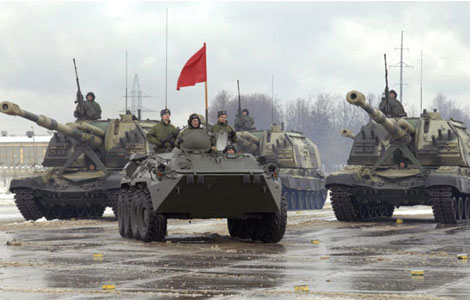 |
|
|
|
|||||||||||
By the end of June, at least 196.3 billion yuan - compared with an estimated budget of 163.8 billion yuan - has been spent on land expropriation and construction for the mammoth 1,318-km rail project, the report said.
The total investment for the railway was earlier estimated at 217.6 billion yuan, which also included an estimated 53.8 billion yuan for the purchase of trains and loan interest during construction.
The auditors found that 413 million yuan spent on train windshields was wasted after the line's operation speed was lowered and design specifications were changed, the report said.
The ministry has responded to the auditors by saying that the windshields would be used in other railway projects.
The auditors had also found evidence of wrongdoing by local governments.
Jiangning Economic Development Zone in Nanjing was found to have applied for land compensation worth 140 million yuan from the railway using false documents, receiving 40 million yuan in payments by the end of June.
Beichen district government in Tianjin had 340 million yuan in its own accounts instead of using it to promptly pay compensation for land expropriated for the railway.
The report said local governments are investigating the cases.
The Beijing-Shanghai High-Speed Railway has also struggled to pay suppliers and contractors. By the end of May, the railway had 8.25 billion yuan in debts owed to 656 suppliers and 1,471 contractors.
Previous reports were published in 2010 and 2011 by the top auditor.
Xu Aisheng, chief of the fixed assets investment audit department at the National Audit Office, said that all three auditing reports have found problems including mismanagement, fraud and irregular procurement.
"Thanks to effective measures taken by the Ministry of Railways and local governments, the problems found in the past three years have mostly been settled," he said.
"As railway projects involve huge amounts of investment, the National Audit Office will continue its focus on the railway sector," he said.
The report has again raised concerns in cyberspace, as netizens urged punishment for those found responsible.
"It's no use to just point out the problems," said a netizen named "Qian'anshi" on a micro blog.
Li Chengyan, a professor in the School of Government at Peking University, said that auditing is the first step for anti-corruption moves.
"When problems in cash flow or management are uncovered, discipline departments will step in to conduct further investigations," he said.
With the rollout of the country's high-speed rail network, the crackdown on corruption in the sector led to investigations of more than 10 railway officials last year.
The list includes Liu Zhijun, former railway minister, who was removed from his post in early 2011 for "serious disciplinary violations".
Wu Ying, iPad, Jeremy Lin, Valentine's Day, Real Name, Whitney Houston, Syria,Iranian issue, Sanyan tourism, Giving birth in Hong Kong, Cadmium spill, housing policy

|

|

|

|

|

|